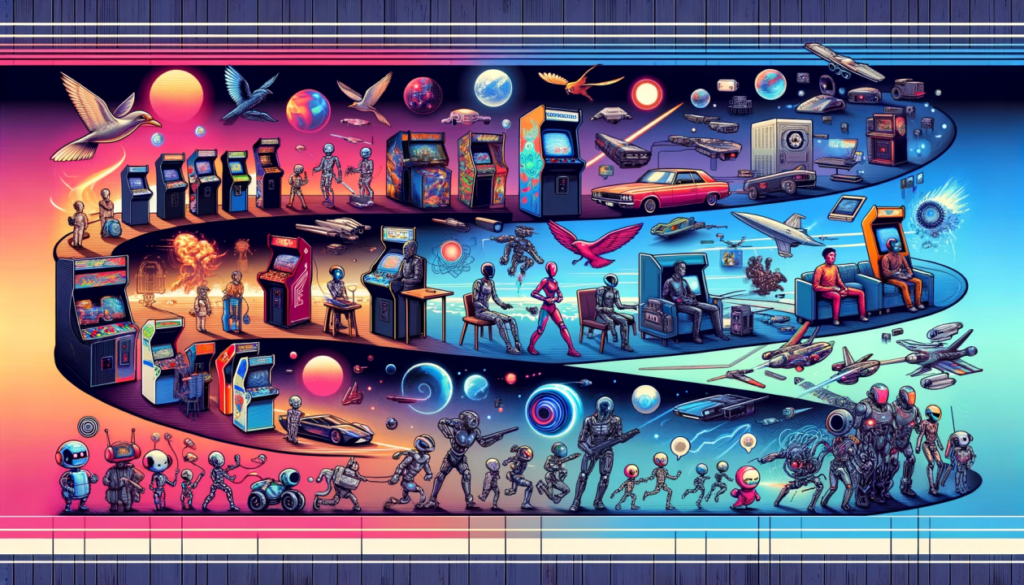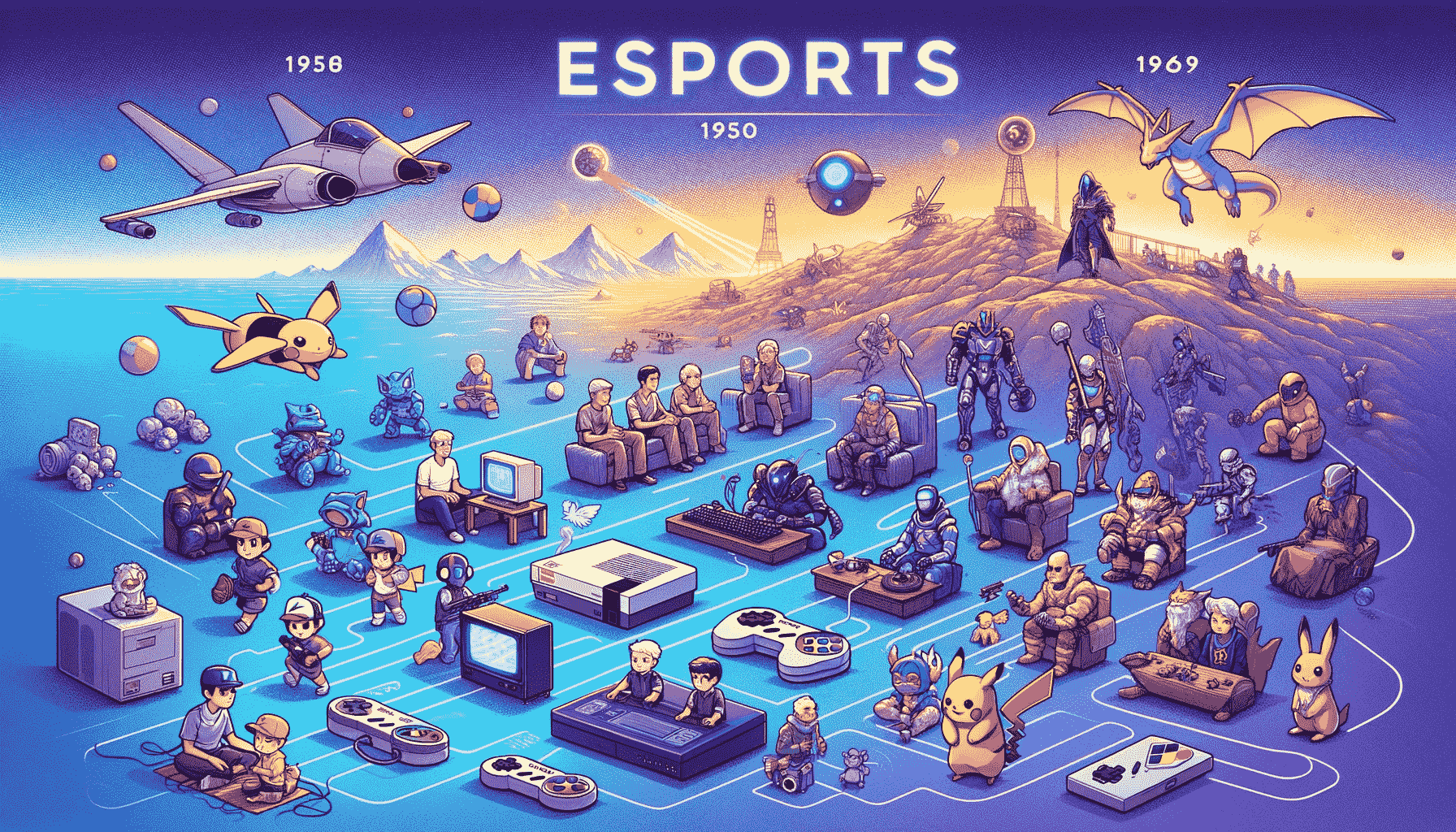Esports, or competitive video gaming, has experienced a meteoric rise over the past two decades. What started as niche competitions among small groups of enthusiasts has grown into a global phenomenon with millions of fans, professional leagues, and substantial financial investments. This article explores the evolution of esports, its current status as a mainstream entertainment medium, and its future prospects.
The Early Days of Esports
Origins and Early Competitions: The origins of esports can be traced back to the late 1970s and early 1980s when arcade games like ‘Space Invaders’ and ‘Pac-Man’ sparked competitive gaming events. The first known video game competition, the ‘Space Invaders Championship’, was held by Atari in 1980 and attracted over 10,000 participants.
Rise of PC and Console Competitions: The 1990s saw the emergence of competitive gaming on personal computers and gaming consoles. Games like ‘Doom’, ‘Quake’, and ‘StarCraft’ became popular among gamers who organized local and online tournaments. The advent of the internet enabled players to compete against each other globally, laying the groundwork for modern esports.
Read also about: The Impact of Blockchain and NFTs on Game Economies and Ownership.
The Growth of Professional Esports
Formation of Leagues and Tournaments: The early 2000s marked the formation of professional esports leagues and tournaments. Organizations like Major League Gaming (MLG) in North America and the World Cyber Games (WCG) in South Korea began hosting large-scale events with significant prize pools. These competitions drew attention from both players and sponsors, increasing the visibility of esports.
Key Games and Milestones: Several games have played pivotal roles in the growth of esports. ‘Counter-Strike’, ‘Warcraft III’, and ‘StarCraft II’ became staples of competitive gaming, each with dedicated player bases and professional scenes. The release of ‘League of Legends’ in 2009 and ‘Dota 2’ in 2013 further propelled esports into the mainstream. Both games introduced structured professional leagues and massive international tournaments, such as the League of Legends World Championship and The International.

Esports as Mainstream Entertainment
Massive Viewership and Fan Engagement: Esports has become a mainstream entertainment medium, rivaling traditional sports in viewership and fan engagement. Platforms like Twitch and YouTube have made it easy for fans to watch live streams and recorded matches, while major events often attract millions of viewers. For instance, the 2019 League of Legends World Championship had over 100 million viewers, comparable to major sports events like the Super Bowl.
Professionalization and Infrastructure: The professionalization of esports has led to the development of structured leagues, team franchises, and dedicated esports arenas. Organizations like Riot Games, Blizzard Entertainment, and Valve Corporation have invested heavily in creating professional ecosystems for their games. These investments include player salaries, coaching staff, and state-of-the-art training facilities, mirroring the infrastructure of traditional sports teams.
Sponsorship and Media Rights: Esports has attracted significant financial investments from sponsors, advertisers, and media companies. Brands like Intel, Coca-Cola, and Red Bull have entered the esports market, recognizing the potential to reach a young and engaged audience. Additionally, media companies are acquiring broadcasting rights for major esports events, further legitimizing esports as a mainstream entertainment medium.

The Social and Cultural Impact of Esports
Global Community and Cultural Exchange: Esports has fostered a global community of players and fans, transcending geographical and cultural boundaries. International tournaments bring together competitors from around the world, promoting cultural exchange and understanding. The inclusivity of esports, which welcomes participants regardless of physical ability or location, has made it a unique and unifying force in the world of sports.
Educational and Career Opportunities: The growth of esports has created new educational and career opportunities. Universities are offering scholarships and degrees in esports management, game design, and related fields. Professional esports players, coaches, analysts, and content creators are finding viable career paths within the industry. The ecosystem surrounding esports supports a diverse range of roles, from event organizers to marketing professionals.

Challenges and Future Prospects
Health and Well-being: As esports continues to grow, the health and well-being of players are becoming critical issues. The intense demands of professional gaming can lead to physical and mental health challenges, including repetitive strain injuries and burnout. Addressing these concerns through proper training, support, and regulation will be essential for the sustainable growth of esports.
Diversity and Inclusion: Promoting diversity and inclusion within esports remains a significant challenge. The industry is predominantly male, and efforts are needed to encourage greater participation from women and underrepresented groups. Initiatives to create safe and inclusive environments for all players will be crucial for the future of esports.
Technological Advancements: Future technological advancements, such as virtual reality (VR) and augmented reality (AR), have the potential to revolutionize esports. These technologies could offer new and immersive ways for players and fans to engage with competitive gaming. Additionally, improvements in internet infrastructure and streaming technology will enhance the accessibility and quality of esports content.
Conclusion
Esports has evolved from a niche hobby to a global spectacle, captivating millions of fans and generating significant financial investments. The professionalization of esports, coupled with its massive viewership and cultural impact, has solidified its place as a mainstream entertainment medium. As the industry continues to grow, addressing challenges related to health, diversity, and technological advancements will be crucial for its sustainable future. The evolution of esports is far from over, and its potential to shape the future of entertainment and global culture is immense.
